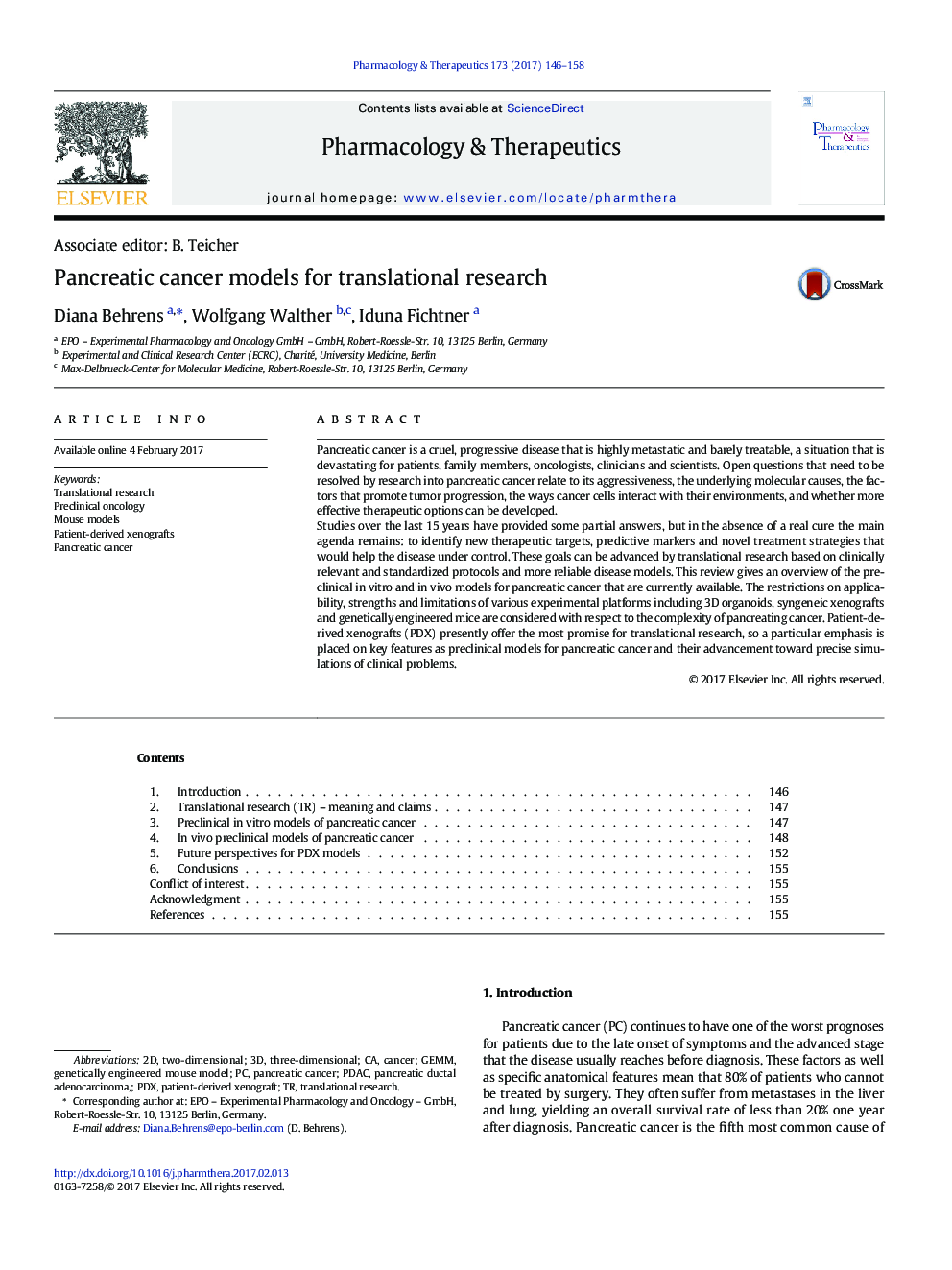| کد مقاله | کد نشریه | سال انتشار | مقاله انگلیسی | نسخه تمام متن |
|---|---|---|---|---|
| 5557702 | 1560932 | 2017 | 13 صفحه PDF | دانلود رایگان |
Pancreatic cancer is a cruel, progressive disease that is highly metastatic and barely treatable, a situation that is devastating for patients, family members, oncologists, clinicians and scientists. Open questions that need to be resolved by research into pancreatic cancer relate to its aggressiveness, the underlying molecular causes, the factors that promote tumor progression, the ways cancer cells interact with their environments, and whether more effective therapeutic options can be developed.Studies over the last 15 years have provided some partial answers, but in the absence of a real cure the main agenda remains: to identify new therapeutic targets, predictive markers and novel treatment strategies that would help the disease under control. These goals can be advanced by translational research based on clinically relevant and standardized protocols and more reliable disease models. This review gives an overview of the preclinical in vitro and in vivo models for pancreatic cancer that are currently available. The restrictions on applicability, strengths and limitations of various experimental platforms including 3D organoids, syngeneic xenografts and genetically engineered mice are considered with respect to the complexity of pancreating cancer. Patient-derived xenografts (PDX) presently offer the most promise for translational research, so a particular emphasis is placed on key features as preclinical models for pancreatic cancer and their advancement toward precise simulations of clinical problems.
Journal: Pharmacology & Therapeutics - Volume 173, May 2017, Pages 146-158
